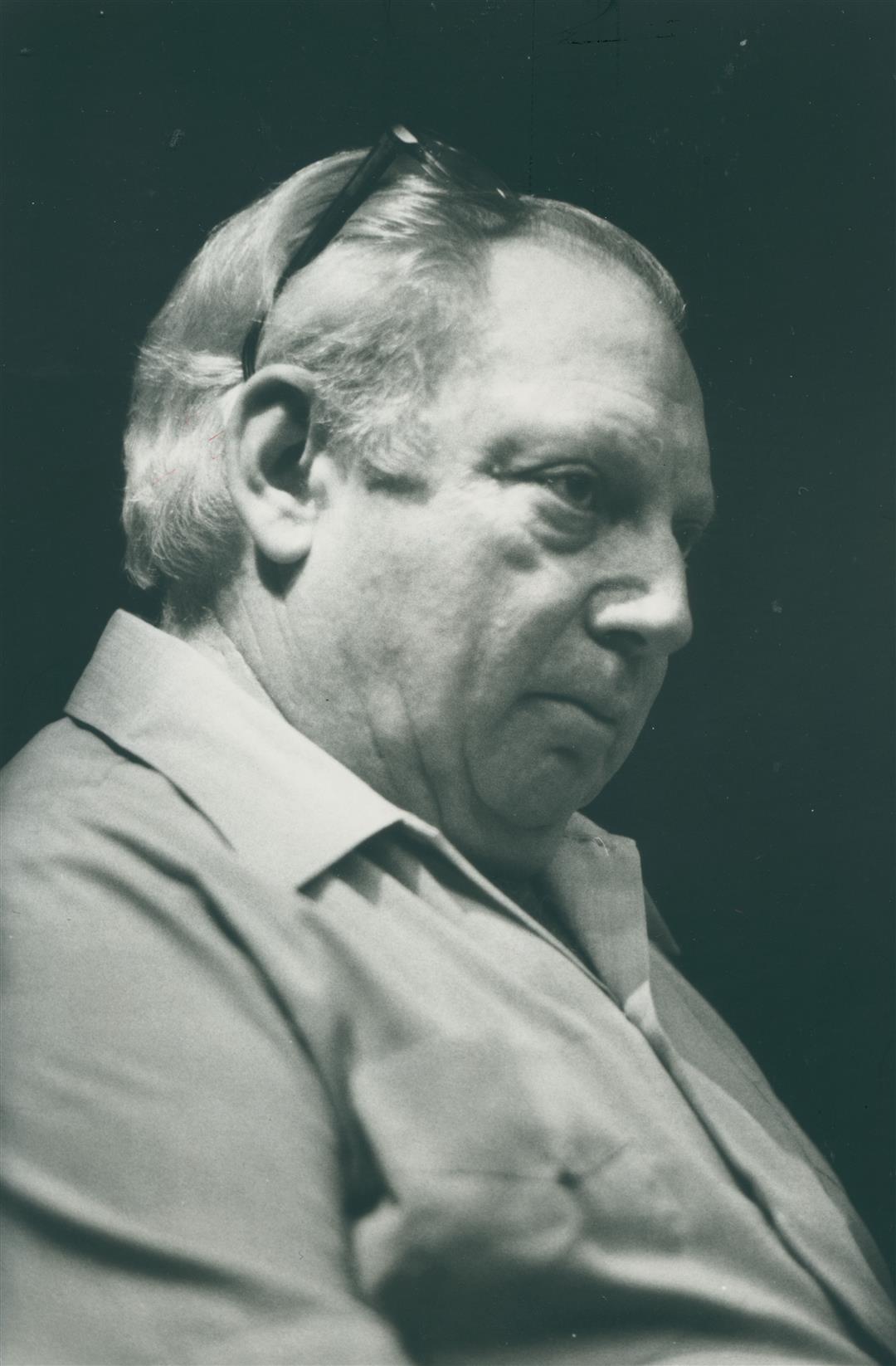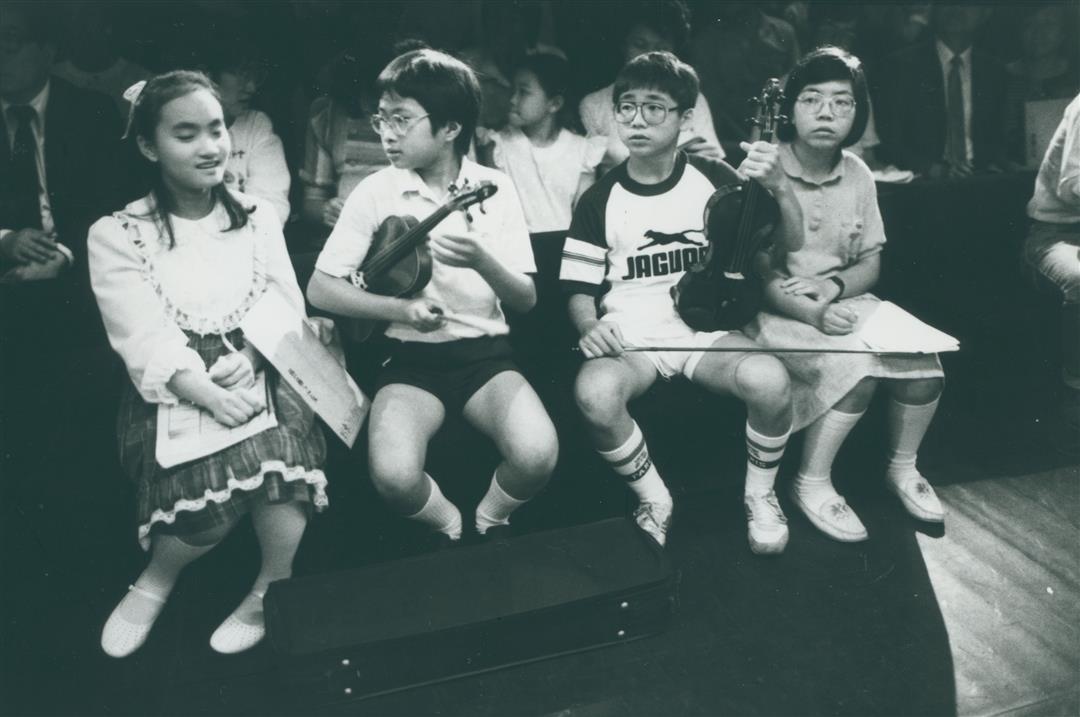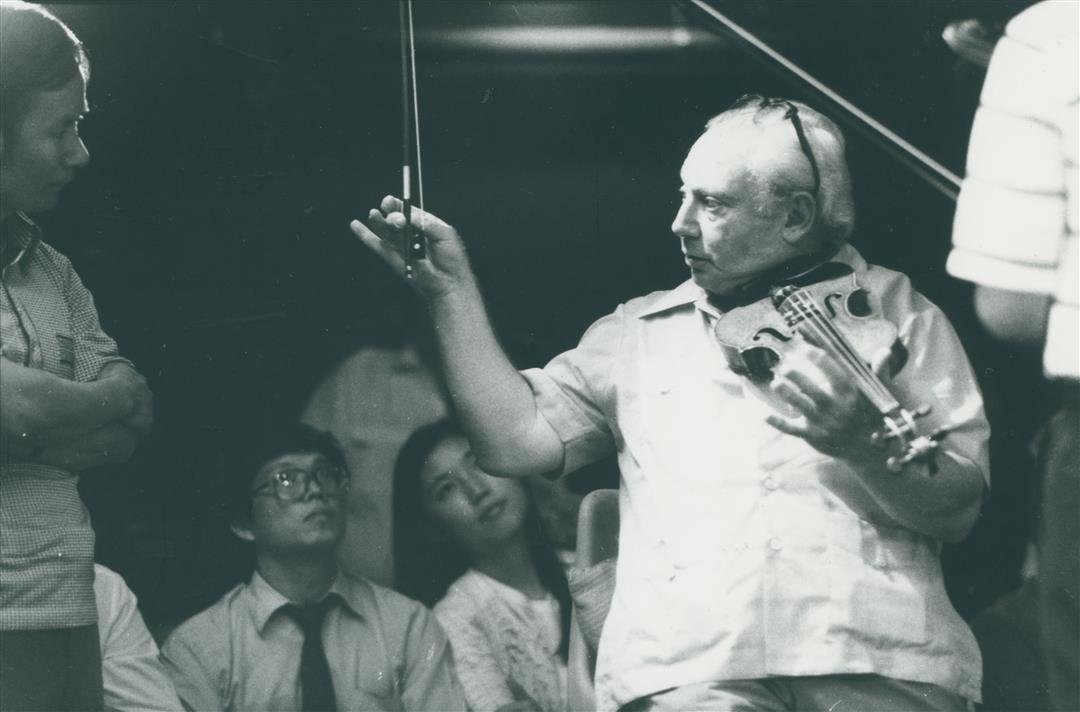"Higher, higher. Hey, you're not apologizing to the floor, you're communicating with the audience. Try and tell them a good story."
Profusely sweating, with glasses set back on his silver mane and gesturing with bow to teacher and student, Issac Stern is unmistakably the center of attention in any music class. Round in build and kind in demeanor, he possesses an arresting sort of dynamism and power which can make an audience quickly forget itself.
Issac Stern has often said that music can serve as a bridge between cultures, and in the beginning of June, the "ambassador of culture" built yet another span as he came to Taiwan to give a concert and conduct a workshop for young violinists.
Under Stern's watchful eye, six violinists ranging in age from twelve to twenty-six played a variety of classics, including pieces by Paganini, Mendelsohn and Tchaikovsky. Stern would concentrate intently on the playing of a student, break out with an appreciative "Bravo!" at the performance's end, and then solemnly discuss the strengths and weaknesses of the young musician with his teacher. To the class he said, "Technique is difficult, and you have to take time in mastering a given piece. Try to learn the background of every selection you play and what kind of life its composer led."
Stern had further words on the nature of his art. "Music is more than notes correctly played. The real music is between the notes. The violin is just an instrument, a tool. You have to make it tell a story. When you play, you have to be that character, just as if you were performing in Chinese opera or Shakespeare. Only if you are moved can you move your audience."
(Mark Halperin)

Isaac Stern--The Musician as Storyteller.

Isaac Stern--The Musician as Storyteller.

Isaac Stern--The Musician as Storyteller.